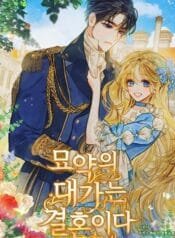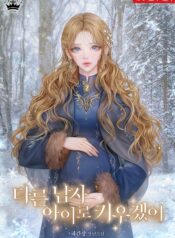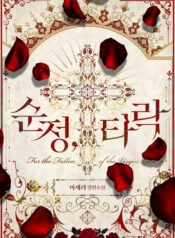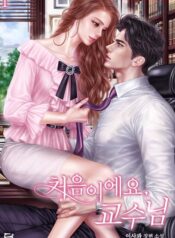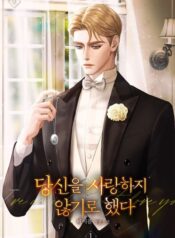Twisting the truth about someone who could no longer speak in their own defense, it was no different than exhuming a corpse just to put it on trial. A final, unspeakable act of cruelty.
“That woman is like a parasite that gnaws through the guts of a corpse. She’ll torment you to the very end.”
Now, Tilda understood what Calles had meant.
Aklaire wouldn’t be satisfied with merely ruining her. She wanted her father’s legacy, her mother’s memory, and the honour of House Vallinea itself. Not even the dead were safe.
Aklaire would drag everyone, including the deceased, through endless torment. Right to the very end.
It was about more than just Aklaire cornering her and stealing from her family.
It was something far more vicious than that. It was fundamentally cruel.
Aklaire was erasing it all. Everything her family had worked for, endured for, bled for and fought for recognition of across generations was being unravelled.
A towering legacy, built up over a lifetime, was being reduced to dust in a single, breathless moment. It collapsed like a sandcastle under a careless wave.
Tap.
Tilda felt the fragile thread that had barely held her together snap. In that instant, the tension in her clenched fists dissolved.
Her fingers slowly uncurled and went limp. Lifeless.
And just like that, her face turned cold. Expressionless. The fire in her eyes was extinguished, replaced by a chilling calm.
She looked down at the maids who were still gossiping and exaggerating the truth. Then, without a word, she turned and walked away, back towards the carriage.
She didn’t bother to hide her steps. She didn’t soften her tread or veil her presence.
The sharp echo of her footsteps across the bridge startled the maids.
“Was someone up there?! Do you think they heard us?”
“…Probably not.”
They hesitated only for a moment before turning back to their work, resuming the rhythmic beat of wet fabric against stone.
“So what if someone did? Everyone’s going to find out eventually.”
As if nothing had happened. As if the cruelty of their words hadn’t stained the air. As if they hadn’t just buried the truth beneath a pile of idle chatter.
***
When she returned to the carriage, the waiting coachman asked carefully.
“Shall I take you back to Lord Calles’s estate?”
“No. Take me to the nearest shrine on the outskirts.”
‘The outskirts…?’
The coachman blinked, looking confused for a moment. By the time they arrived, it was almost sunset, so the shrine might already be closed. The request made little sense.
However, one look at Tilda’s pale, expressionless porcelain-like face made him swallow any questions he might have had. Without another word, he gripped the reins and turned the carriage towards her destination.
The rural shrine was farther away than he had expected. By the time they arrived, the last light of day had already begun to fade.
Fortunately, the doors were still open, though there was no sign of a priest.
‘Is it really okay to leave a noblewoman alone in a place like this…?’
The coachman hesitated, casting a wary glance at the empty grounds. But when Tilda told him to wait by the carriage, her tone brooked no refusal. With a quiet nod, he stepped back.
Left alone, Tilda entered the chapel.
The sanctuary was small and bare. Only the statue of the goddess Vallinea stood watch, towering silently over rows of worn wooden pews.
It felt more forgotten than sacred. Still, something in the stillness drew her in.
Tilda plucked a single wildflower from near the entrance and walked slowly down the aisle, her footsteps soft against the stone. She took the frontmost seat and sat down in silence.
Outside, insects began their nightly chorus, a quiet hum against the coming dusk.
She brought her hands together, her long lashes falling like velvet curtains as she closed her eyes. Delicate shadows danced across her cheeks.
Drawing in a steady breath, Tilda bowed her head, and began to pray. Not with words, but with the storm in her chest.
‘To the Goddess Vallinea…’
In the past, I would come before the Goddess to confess my sins and steady my wavering faith through reflection.
But not today.
Today, I stand here — heretically — not in repentance, but with the resolve to defy her teachings and pass judgement with my own hands.
I offer this to the Goddess too — not as a plea, but as a declaration:
“I will send the divorce papers.”
I will punish the man who broke his vows and conspired with the woman who pretended to be my stepmother.
“Birds of a feather, right? Wasn’t Lady Celestia the same kind of person as the late Duke?”
I will make those careless, cruel people who kill with words as sharp as blades repent.
“It was me. I was the one who gave you the fruit that amplified your divine power when you were young. I had someone deliver it to you.”
I will drag the person who shattered a family and took innocent lives into the very depths of hell.
“I want to see you fall into ruin.”
If I become corrupted in doing so, if I must descend into darkness, then please…
Have mercy on your faithful follower, even as she loses herself and falls to the lowest depths.
Hoo…
Tilda exhaled softly, finally releasing a breath she had held for a long time. Then, slowly, she lifted her head.
Then, without hesitation, Tilda reached up and unfastened the brooch clasped at the front of her cape.
She turned it in her hand, gripping the sharp pin tightly, and drew a long, deliberate cut across the back of her hand.
A sharp sting. A breath caught in her throat.
Red droplets welled up from the wound and slowly trickled down her fingers. As the blood gathered at her fingertips, she let it fall, drip by drip, onto a single, pure white flower.
Drip.
The crimson soaked into the delicate petals, bleeding through until the once-innocent bloom took on a strange, haunting hue.
No longer a symbol of purity, but of sacrifice, of resolve.
Tilda rose to her feet and stepped toward the altar.
With steady hands, she placed the blood-stained flower before the statue of the Goddess.
An offering. A promise.
Her voice, quiet but unwavering, echoed softly in the small sanctuary:
“May the sacred flame of the Goddess be with you.”

